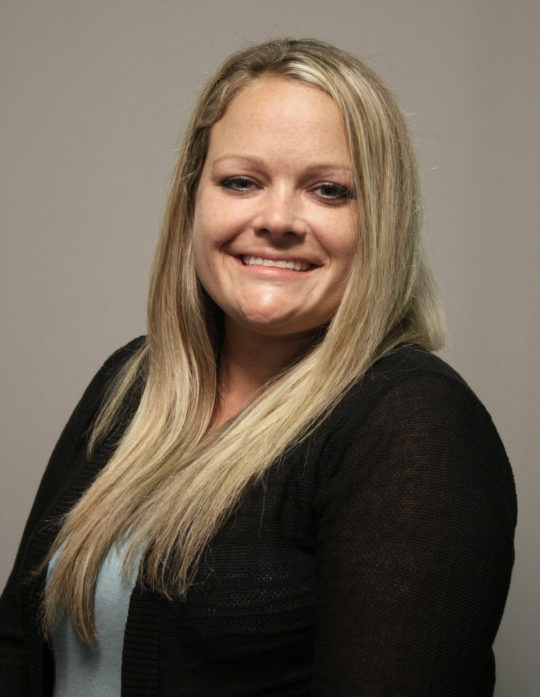A. Corinne Huggins-Manley, Ph.D.
A. Corinne Huggins-Manley
Associate Professor of Research and Evaluation Methodology
College of Education
2020 Awardee
Corinne Huggins-Manley is a psychometrician – in other words, a testing expert. Her research focuses on developing new methods to help educators account for nuanced data points that can’t be directly measured through observations, such as a student’s level of engagement or motivation to learn. The tools she develops can help instructors meet students’ individual needs and improve long-term learning outcomes.
“When I asked myself, ‘What can I do to help the world?’ it all came back to education for a thousand reasons,” said Huggins-Manley, associate professor of research and evaluation methodology. “I’m somebody who believes education is the answer to the world’s problems and also somebody who really values quantitative research as an incredibly useful tool to shine light on which educational interventions work for whom.”
Huggins-Manley, who earned her Ph.D. in educational research, measurement and evaluation from the University of Miami, uses observations of students, surveys and interviews to ensure data-driven conclusions don’t stray from a student’s practical learning experience. She also evaluates whether new and existing measurement techniques can measure student experiences fairly.
She is currently a co-principal investigator on an $8.8 million dollar grant from the U.S. Department of Education’s Institute of Education Sciences that is funding an array of projects, including an evaluation of whether algorithms can be used fairly to personalize virtual learning. Huggins-Manley is also the principal investigator on a $1.2 million grant from the Institute of Education Sciences to partner with educators to develop an assessment tool that can hone in on specific concepts that challenge a student in their early reading years.
But, she said, it’s not uncommon for psychometricians to face backlash when developing new tests.
“Probably one of our biggest challenges is the public perception of testing, which is more about educational policies than the actual process of testing itself,” she said. “I usually tell people to bear in mind that it’s probably not the test they don’t like – it’s how it’s being used. In my research, we’re not using our tests for anything other than helping teachers understand how students are doing.”
Huggins-Manley, who also studied social and economic development, added that her plans for the coming year include integrating anti-racism teachings into UF’s research and evaluation methodology program at the college of education.
“What I realized this year is that I have failed to bring my prior training in social justice as an embedded piece of what I do in my current career,” she said. “This year is different for me because I’m now fully committed to bringing in this knowledge and looking at our field through a different lens.”
Huggins-Manley is also the coordinator of undergraduate specialization in educational psychology and research method at UF’s college of education.
Learn more about Huggins-Manley’s research.
Learn more about research evaluation and methodology at UF.


